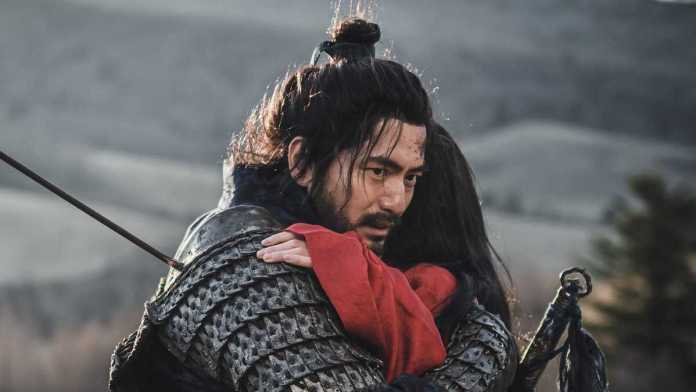K-dramas have taken many folklore stories and turned them into modern-day fairytales. Goblin, Habaek, and Gumiho, or nine-tailed-fox, are all well-known, with Gumiho being the most well-known. In “Bulgasal: Immortal Souls”, a new mythical creature, Bulgasal, was introduced to the K-drama fans. Inspired by the Korean folklore of Bulgasari, we get a fairytale that is more thrilling than romantic.
‘Bulgasal: Immortal Souls’ Plot Summary
A child born of a dead mother is abandoned by his father and is seen as unlucky by the villagers because he was born with Bulgasal’s curse. The little kid gets adopted by the general of Goryeo and names him Hwal. He grows up to become a warrior who kills monsters. He has killed all the monsters except Bulgasal, who they still don’t know if he is a myth or real. The creature is indeed real, and she finally shows up and kills all of Hwal’s family-his father, wife, and son. As if that wasn’t enough, the monster turns Hwal into a Bulgasal instead of killing him. The Bulgasal becomes a human by stealing Hwal’s soul.
Since that day, Hwal has been searching for the Bulgasal for 600 years to get his soul back, but every time she is killed by other monsters who have reincarnated as humans. After his relentless search, Hwal finds Bulgasal born as twins, but one of them, Sang Yeon, is killed by a monster, and the other one, Sang Un, runs away with her younger sister, Si Ho. After some years, Hwal finds her again, and a series of unprecedented events start happening in both Hwal and Sang Un’s lives. All these years, Hwal believed that he was the only Bulgasal in existence and Sang Un believed he killed her family, but another Bulgasal appears and changes the flow of their lives completely.
As the mystery unfolds, everyone from Hwal’s past life starts appearing. All of them are connected through Karma, and they have come full circle now. Alliances are formed and broken every time a new mystery is unveiled. A battle among three antiheroes and their karmic connections is bound to bring misery to all of their lives as they pay for their deeds.
A Humane Side Of The Story Of Antiheroes
According to Korean folklore, the monster Bulgasari came to life because of a woman’s blood and died because of it as well. The folklore monster feasted on iron, but here, Bulgasal feasts on blood, much like a vampire. The story is molded to fit the modern world, but it does not forget to leave references to the original folktale. A monster who kills people can never be a hero. In Bulgasal, no one is a hero. The story is multidimensional. Just because someone was good once doesn’t make them a hero. They have done more damage to people in their different lifetimes, be it Hwal, Sang Un, or Eul Tae.
The series starts with horrifying and gruesome scenes but later changes its shades to lighter tones. The main characters, the three antiheroes, carry different shades of dark. Hwal, the human-turned-Bulgasal, does not kill humans just for the sake of a promise made to someone. He is violent and scary when he reveals his true form. Sang Un looks like an innocent human, but she used to be a Bulgasal, and as a human, she is very defensive and has been facing monsters since childhood. She is like a ticking self-destructive bomb. Eul Tae is powerful and vicious. He feeds off human blood and exudes toxicity in his mere presence. He is the most layered character of them all. Sometimes he acts like a normal human who plays video games and is depressed by life. Though he is a monster, he has people he cares for; he has an emotional attachment. He is unpredictable.
Compared to the initial half of the series, where it is all about monsters, deaths, revenge, and escape, it develops in the second half, where the emotional side of the non-human characters is explored. Their karma has brought their past into their lives. The monsters who have been living heartlessly have to face their emotions. Hwal meets his family from the past and promises himself to save them this time because he couldn’t do it in the past. Eul Tae is known to be ruthless, but he always lets his past-life father go alive and also has a friend whom he betrays later but does not kill.
If it has to be described in a sentence, “It goes from heartless in the beginning to heart-wrenching in the end.” The cinematography of the historic era seems magical, suitable for a fantasy feature. All the actors have portrayed their characters smoothly and with ease. However, Lee Joon’s portrayal of Ok Eul Tae is exceptionally impressive and deserves a round of applause. Unarguably, Bulgasal is one of the finest fantasy/fiction kdramas and is surely a treat to watch for fantasy lovers.
See More: ‘Bulgasal: Immortal Souls’ Season 1: Ending, Explained – What Was Hwal & Sang-un’s Past?
